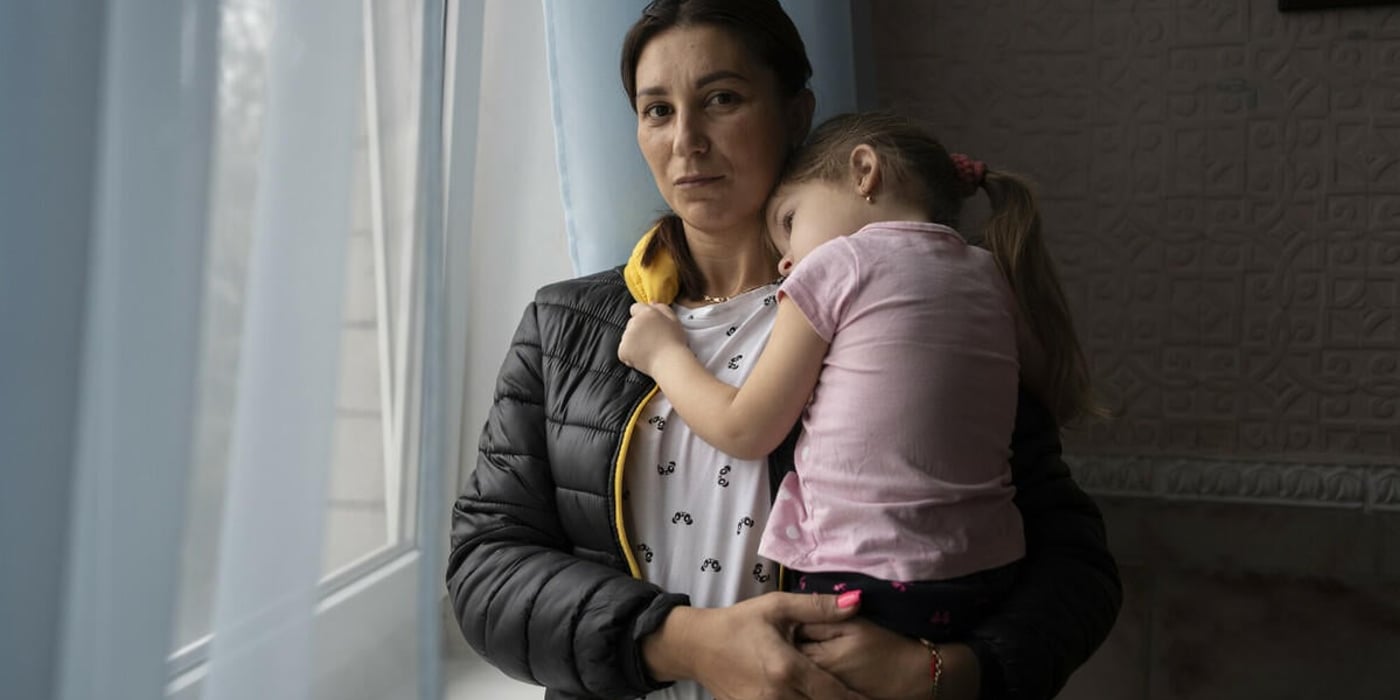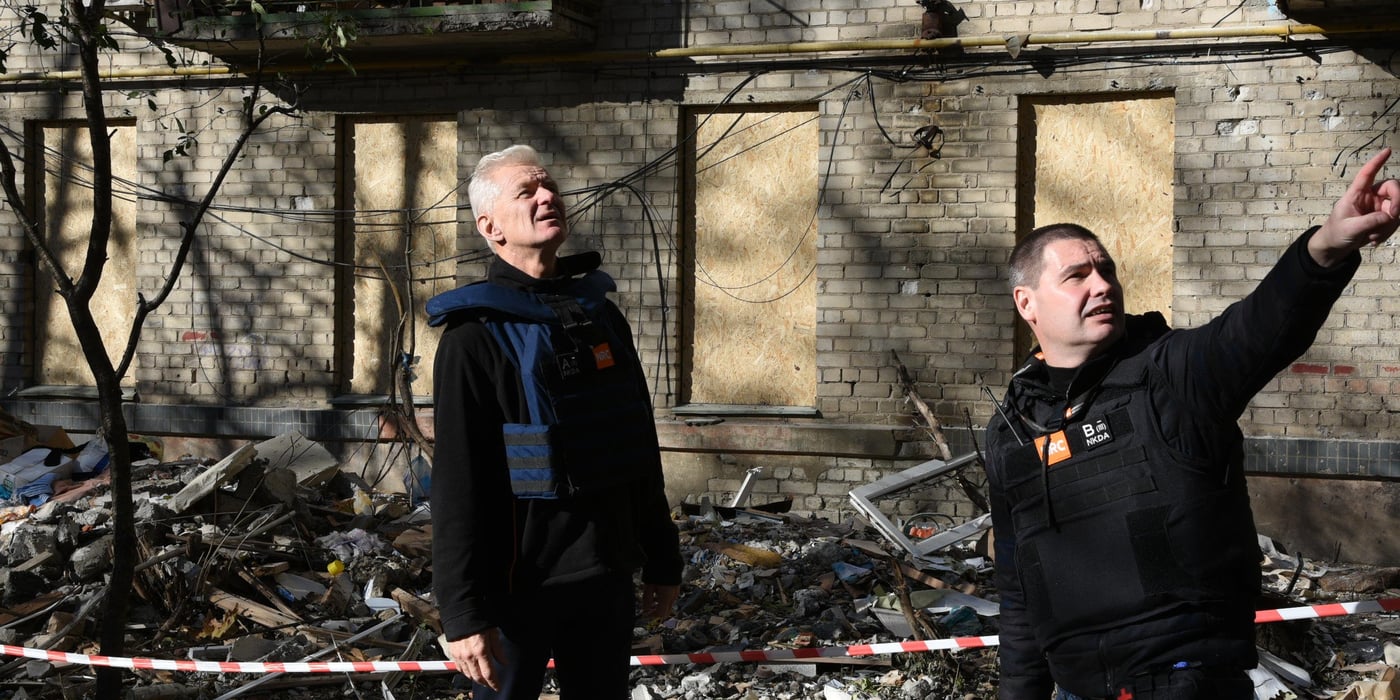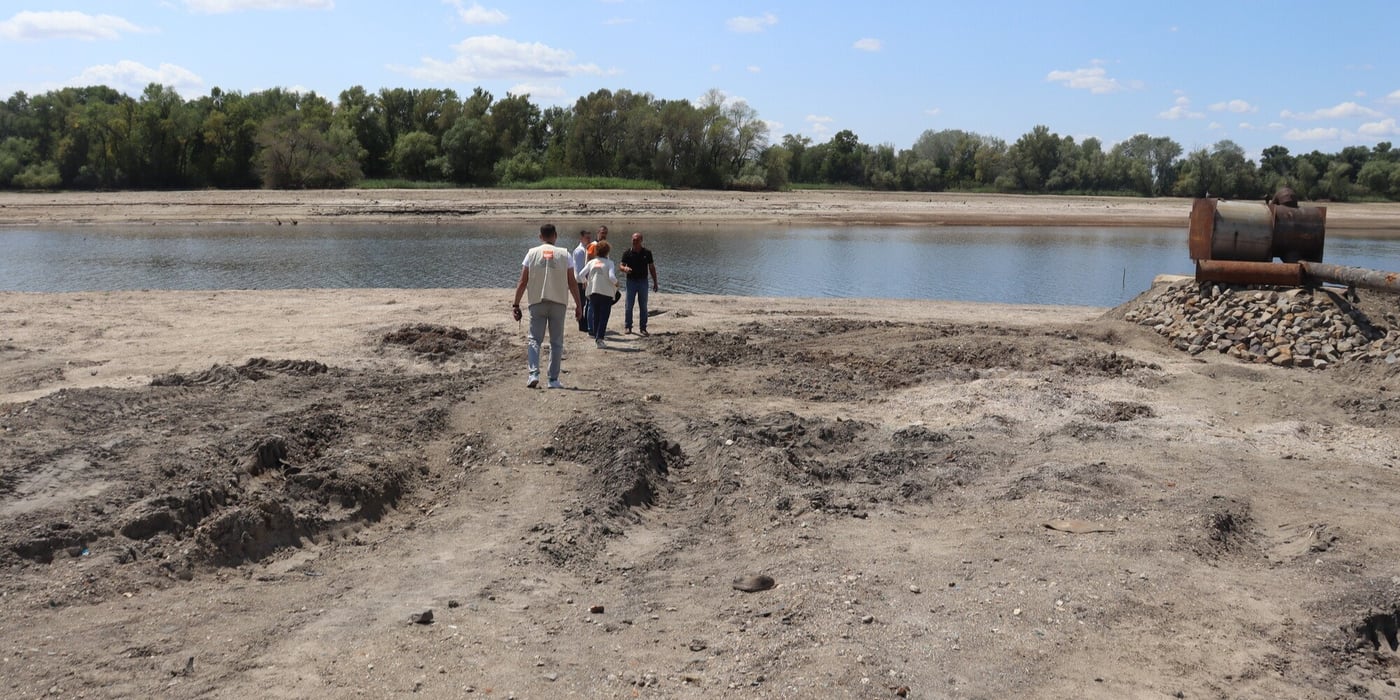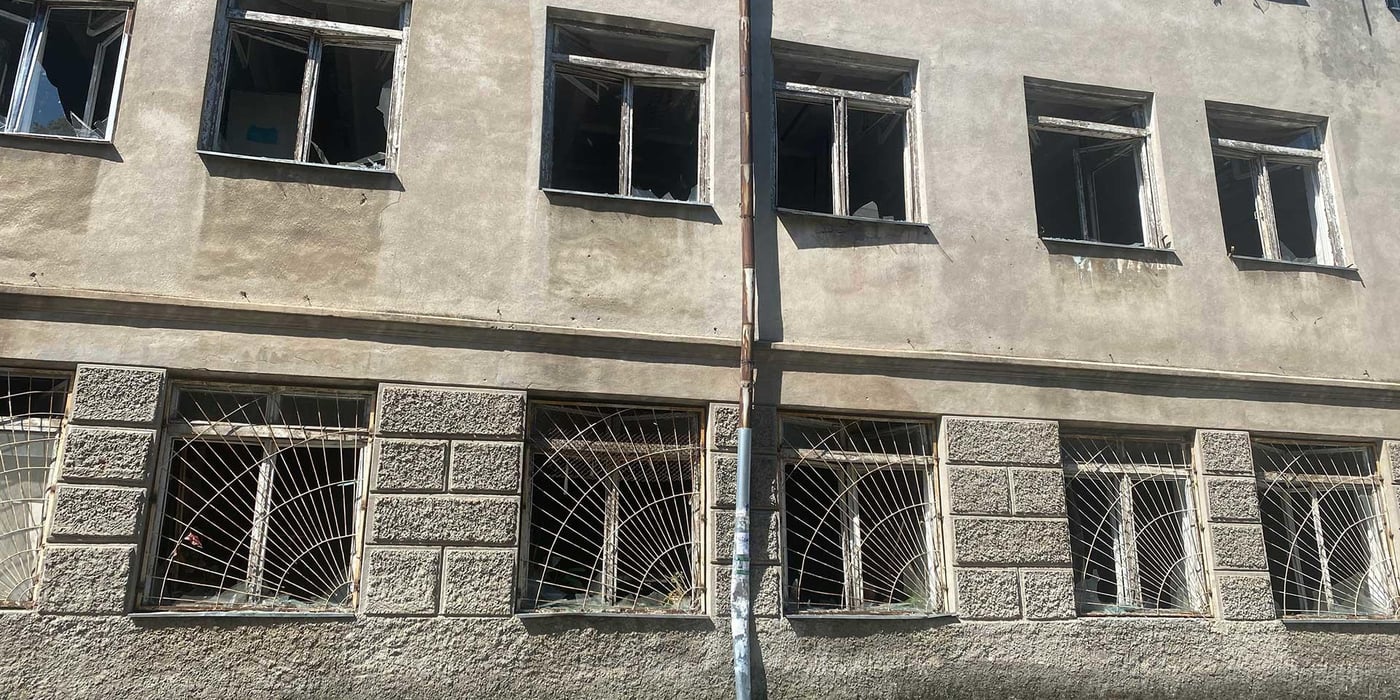
- Almost half (47 per cent) of people surveyed in the east and south of Ukraine report their houses have been damaged or destroyed.
- 57 per cent of those surveyed across Ukraine who are displaced report they have been displaced for over 18 months.
- 83 per cent of respondents across the country report that they fear for their lives and others around them, or do not feel safe.
New data from a survey conducted by the Norwegian Refugee Council (NRC) with over 1,000 participants across Ukraine has revealed the devastating impacts of the escalation of the war, two years on. The survey which covered topics related to displacement, access to services and the ability of Ukrainians to meet their basic needs, paints a complex picture of a population, particularly those in the east and south, who have been pushed to the limit to survive.
Anjela, 44, from Mykolaiv, and her family have been displaced for almost two years after their house was destroyed.
“We decided to be the first ones to flee the village. We simply took a blanket and tore it into pieces to make white flags. We walked 15 kilometres under the shelling, one after another. We were afraid of being shot so we needed to run fast,” she said.
On top of having to flee, in April 2022, Anjela was dealt the devastating blow when her father, who had stayed behind in their home village to look after his parents was killed by a missile.
“People who were still in the village at that time pulled him out from under the rubble, it was all under fire...he did not have half his head. My father was buried, covered in a blanket. He was 65 years old. It’s good that people buried him and put the cross, so at least we knew where his body was. Others did not have this chance.”
Anjela told NRC that it wasn’t until one year later that they were able to have her father’s body exhumed and give him a proper burial in a village near where she and her family are now displaced. She told NRC that he could not be buried in their home village as the local cemetery was now contaminated with mines.
Anjela’s story highlights that in addition to prolonged displacement and the destruction of their homes, many families are also dealing with tragic loss and trauma as the war rages on.
A sobering 37 per cent of respondents to the survey reported that they had lost an immediate or extended family member in the last 24 months.
Data from the report also points to the potential conditions for Ukrainians living in areas of Ukraine currently under Russian occupation. 64 per cent of respondents believed to be in areas under Russian occupation reported that they are unable to meet their basic needs at all, meaning they are struggling to find food, water and shelter.
Two years on, the suffering in Ukraine is becoming a protracted crisis, as people exhaust their resources and struggle to cope.
“The daily reality for millions of Ukrainians is living under the constant threat of shelling and death,” said Jan Egeland, secretary general of NRC.
The level of humanitarian needs in Ukraine remains high. Last year just over two-thirds of the funding needed was covered. This year it is expected that 14.6 million people in Ukraine will need humanitarian assistance.
“It is essential that civilians caught up in conflict are protected, and are able to access lifesaving aid. We have a right – and a duty – to ensure the provision of assistance to civilians, no matter where they are,” said Egeland.
“Humanitarian organisations must be given immediate access to those civilians living in Russian occupied areas.
“Member states must do everything in their power to ensure respect for international humanitarian law in Ukraine, while donor nations must revamp their efforts to ensure continued humanitarian assistance for millions of Ukrainians still desperately in need of aid. The world must not forget Ukraine.”




